|
Annie Cilley’s new EP is three stories told through song. Acoustic instruments, voices, strings, samples, and electronics decorate the worlds in which these stories take place - a forest, an ocean, and a haunted mind. Three Songs incorporates elements of electronic music, chamber jazz, gypsy jazz, and folk music. Annie’s background as a gypsy jazz singer, folk fiddle player, and electronic musician help inform her sound. The landscape of her birthplace, rural Petaluma, CA, informs the imagery in her lyrics and the whimsical stories that they tell. Here she talks about her new EP, the magic of hearing Billie Holiday sing Gloomy Sunday for the first time, busking, fiddle lessons from Jolie Holland and what inspires her music, the ups, the downs and the still evolvings of a life dedicated to the winding path ways of the song. AHC: What has this journey in music, so far, been like for you, the highs and the lows, and what life lessons do you feel you've picked up along the way? Oh man, its been all over the map. It took me a long time to commit to music in a serious way. I used to float around in different mediums - poetry, theater, dance, visual art - but I really committed to music about 5 years ago, and since then its been an awesome and at times crushing journey in discovering myself - what it takes to develop a skill, how to take risks and set boundaries, how to fail, how to finish things. AHC: What first drew you to music and what was your early musical environment like growing up? Were there pivotal songs for you then that just floored you the moment you heard them? My sister paved the way for me in a lot of ways. She took after my Dad’s interest in musical theater, so I did too. She played sax so I played sax. She sang in choir, so I sang in choir. She’s a songwriter too, and I got the chance to give back to her recently by helping her produce her first EP (Like a Babe, Fionna Lane). I was so influenced by my siblings - and MTV - that it took me a while to develop my own taste. When I was a teenager, one of my good friends showed me a recording of Billie Holiday singing Gloomy Sunday. I was completely transported. I think it might have been the first time I experienced that feeling, being entirely immersed in the world of a song. AHC: Do you remember the first song that you ever wrote? Or that first moment when you picked up a pen and realized that you could create whole worlds just by putting it to paper? I started writing poetry in elementary school. I kept it up, and it was probably what got me through the harder part of my childhood. I’d stay up all night writing so often that I started missing school because of it. Some of the poems were intended to be songs, but I didn’t begin setting them to music until my high school sweetheart’s mom dug up an acoustic guitar for me for my 16th birthday. The action on that thing was vicious, but I played on it anyway. I had a good friend who played banjo, and we’d write ridiculous songs together while we got silly with our friends. In the morning I'd sit on the front porch with my guitar and just play whatever came out. I think that's where I started writing some of my first songs. AHC: Which musicians have you learned the most from? Or writers, artists, filmmakers etc? My friends in the North Bay. I wouldn’t have the experience I have without them, and I may never have discovered some of my greatest musical influences had they not introduced me to their records. The music community in Santa Rosa, CA accepted me with open arms, and despite all my imperfections as an instrumentalist and person, they carried me with them on many grand adventures. AHC: What do you think makes for a good song, as you're writing and composing, is there a sudden moment when you know you've found the right mix, that perfect angle of light, so to speak? I think a good song communicates. Writing a song is a method of distilling messy, complicated human experiences into simple lyrical phrases, something others can digest and hopefully understand. The moment I get the recipe right is fantastic - the best feeling. AHC: Your EP 'Three Songs' is described as a record of stories musically decorated, each in their respective landscapes of a forest, an ocean, and a haunted mind, and that the landscape of your birthplace, rural Petaluma, CA informs a large part of the imagery on this record. Could you talk about the role environment plays in your songwriting process? is capturing that sense of place, (where we come from as individuals) a pivotal point of creation for you? That sense of place, of where I come from, will always inform my work. So much of my emotional self is wrapped up in the landscape of my childhood. It was exceptionally beautiful and exceptionally painful and that combination has allowed me to frame it as a kind of fairytale, whimsical and dark at the same time. My highest aspiration is to create songs that feel like memory, or a vivid dream - to send the listener to that place of active listening, of awareness, a sense of feeling transported to the world of the song. AHC: Do you consider music to be a type of healing art, the perfect vehicle through which to translate a feeling, a state of rupture, hope lost and regained? Does the writing and creating of the song save you in the kinds of ways that it saves us, the listener? Yes. Absolutely. AHC: What are your fondest musical memories? In your house? In your neighborhood or town? On-tour, on-the-road? Oh so many memories. Busking anywhere and everywhere with my best friends, tour-camping all over the Pacific Northwest and the Southwest, taking a fiddle lesson from Jolie Holland in New York, seeing Tin Hat perform live for the first time, spending sleepless nights writing songs in the old victorian house I used to rent a room in. AHC: What would be your dream gig, if you were asked to go on tour and open up for one of your musical heroes or heroines? I think an appearance on Sesame Street with Tom Waits and Bjork would be the way to go. AHC: When you set out to write an album of songs, how much does 'where the world is' in its current moment, culturally, politically, otherwise, influence the kinds of stories you set out to tell? My work is mostly about self-reflection and interpersonal relationships. We, as individuals, are inevitably impacted by ‘where the world is,’ and in that way, my work is affected. AHC: Do you have any words of advice for other musicians and singer-songwriters out there who are just starting out and trying to find their voice and their way in this world? I know you're at an early moment in your own journey, but what are the kinds of things that you tell yourself when you begin to have doubts or are struggling with the creative process? Some things I am constantly reminding myself - “its about the process, not the product”. Loving the fruit of your labor isn’t the same as loving what you do. If you find yourself struggling with the creative process, examine your methods. How can you make the process more fulfilling? More fun? Second, make the product for no other reason than that you believe in it - you want it to exist. We are such reward-centered creatures that it is easy to slip into a place of creating for the other rewards that come with it - the approval of family and friends, recognition, income - but it is the work itself that matters. You are the only you on this planet and the only you that will ever be on this planet. Make work that you believe in and it will have intrinsic value. AHC: Do you have any new projects in the works you'd like to tell people about? Yes! I am currently working on my second EP, Stranger, on track to be released Summer 2017. The songs explore themes of personal identity, death, growth, and the simultaneous vastness and smallness of existence. For more visit anniecilley.com/ anniecilley.bandcamp.com/ RoseRed And The Butterflies, aka Lydia Nicolaides is a prolific singer/songwriter from north London Enfield, with a DIY ethos. She pens catchy lyrics and silver tongued melodies that tell stories in a refreshing and original way. With a mixture of realism, fun, quirkiness and sadness, RoseRed’s music can move effortlessly from lightness into dark, and her style crosses a variety of genres, from Folk to Rock; from Country to Reggae. ‘Imagine Mary Poppins on acid’ playing the guitar and dancing like a pixie. RoseRed released her eagerly awaited debut album ‘Just A Glimmer’ in 2010 an album which she wrote, recorded, produced and funded herself, in-between several years of playing the London gig circuit and which got voted and won the Fatea Magazine debut album of the year 2010 Award. Her brand new, sophomore album, New Age Drifter has just been released and is well worth the listen. AHC: What has this journey in music, so far, been like for you, the highs and the lows, and what life lessons do you feel you've picked up along the way? So far my music journey has been one epic learning process. I have been building up gradually a steady growth of skills and experiences, I guess just like life there are fun times and sad times, I've made some mistakes but learnt from them and bounced back stronger. I have met so many amazing souls along the way and have grown more confident within myself. I'm quite shy usually but when I'm doing things music related I can switch into RoseRed mode and be more brave. I have done things I never thought I was capable of doing and am constantly facing my fears. I have learnt to trust in myself and my abilities and have realized sometimes things won't happen until internally you are ready for them to happen. I feel there are still many more lessons to come! Watch this space. There is that great quote "You cannot come into your fruitage before you have grown to it" Joseph S. Benner AHC: What first drew you to music and what was your early musical environment like growing up? Were there pivotal songs for you then that just floored you the moment you heard them? When I was little I got a red radio for my birthday that also had a cassette player on it that could record and I would spend hours taping radio shows and music hoping the dj's wouldn’t speak during the intros so I could get the whole song, and then I would listen to them at night on my walkman. I grew up in the 80's, I loved music and cassettes and also downstairs we had a big 'Hi-FI' system which had a record player on top and my dad would always stick on records he had, usually compilations of 80's chart songs, Bob Marley, Queen, Wham, Madonna and Michael Jackson. I loved watching the vinyl spin! When I was 16 I had the urge to play drums, I have no idea where it came from and I started having a few lessons during school time. I loved beating the drums and released much frustration and angst I had within me. That year my brother got a nylon classical guitar for Christmas and I felt drawn to it and I would go in his room and try and play it when he wasn’t home. I had no idea what I was doing but I loved picking at the strings and the sounds it would make. I asked my mum for a guitar for my birthday and we went together to Denmark Street in Central London and bought one. I was over the moon! I then taught myself how to play. One of my biggest floored moments: My brother got into listening to the Beatles and 60's and 70's music and one day he was watching a video of the 1967 Monterey pop festival and I was just passing by when I heard Janis Joplin for the first time. I'd not heard such a raw voice like hers before, I was so curious I went in his room and watched with him. She was singing Ball & Chain with Big Brother & The Holding Company, pounding her feet and screaming, and then seeing the crowds reaction I was totally blown away and have loved her ever since. 3) Do you remember the first song that you ever wrote? Or that first moment when you picked up a pen and realized that you could create whole worlds just by putting it to paper? I think the first song I wrote was called Summer's Day it was quite catchy, and I remember I performed it at a local music event, I cant remember how to play it now or the lyrics I have terrible fish memory. I do remember however the first song I wrote that you could say opened Pandora's box within me and led to a flood of other songs. It was in 2001 and called To Breathe, quite a personal one (that I have never performed to anyone) and felt like I was releasing some personal demons. From then on I was hooked on playing guitar and writing and realized it made me feel good and put my heart at ease. AHC: Which musicians have you learned the most from? Or writers, artists, filmmakers etc? Hearing Sheryl Crow playing 'Strong Enough' for the first time made me want to learn the guitar riff which to me was quite complicated at the time and I tried and tried till I worked it out and strived to be a better guitarist. I still love that song. Janis Joplin was a great inspiration, I read more about her life after seeing the 1967 Monterey pop festival performance and bought her albums. I also got into HOLE and Nirvana, Aerosmith, Counting Crows, Jeff Buckley, Buddy Holly, Elvis, Pixies, Bob Marley, Neil Young, Ani DiFranco, Grace Slick and Jefferson Airplane. All of these musicians and more have touched me musically, i can go on forever about this subject but ill stop with these. AHC: What do you think makes for a good song, as you're writing and composing, is there a sudden moment when you know you've found the right mix, that perfect angle of light, so to speak? For me I guess it’s that powerful hook and words that stir something within you and make your body want to react in some way, chords that flow in a effortless pattern. With my writing style I never know whats going to happen but if its flowing I know I'm on the right track. AHC: Do you consider music to be a type of healing art, the perfect vehicle through which to translate a feeling, a state of rupture, hope lost and regained? Does the writing and creating of the song save you in the kinds of ways that it saves us, the listener? For sure! I truly believe music is good for the soul, it is the soundtrack to our lives, its like capturing a emotion in time. I couldn't imagine a world without music in it. The feeling you get when you are playing music in perfect timing and synch with other people is such a magical thing. Writing music is what keeps me going everyday so yes for me its a great release and cathartic experience AHC: What are your fondest musical memories? In your house? In your neighborhood or town? On-tour, on-the-road? Some of my fondest memories are when I have played a good gig and made someones foot tap or dance, or made some children dance around. Having people come up to you after a show and say your music has touched them in some way is always a great feeling. Meeting other musicians along the way and making some awesome friends at the same time has always been something I will forever be grateful for, you never know who you are going to meet at the places you play. AHC: You're largely self taught, including teaching yourself music production and a great many other things surrounding the business, what has that process been like, constantly learning and relearning on a curve? Call me Miss D.I.Y! it's like that scene from The Matrix when they need to know how to do something fast and they quickly upload a disk to your brain and ta da you can fly that helicopter or know bad ass kung fu, only with me it takes a little more time of course and i have books and the internet to help me out. Being an independent artist you have to be resourceful and do a lot of things yourself but I guess that’s the way I have always been in life, I always try and work out how to do things and fix things. I grew up not asking for help for a lot of things and it stuck with me. With guitar there are so many things I still don't know such as scales, how to read music, and names of some chords but I still see myself as constantly learning and many teachers of guitar have complemented me on the style of my playing. Music production wise I'm still a newbie but I'm always improving. I' am getting better at asking for help for things, but it goes to show if you put your mind to something you can achieve it. We never stop learning. 9) When you set out to write an album of songs, how much does 'where the world is' in its current moment, culturally, politically, otherwise, influence the kinds of stories you set out to tell? Life and the world is one of my biggest influences and I think you will find in quite a lot of my songs lines relating to life in general or hinting at specific things. Because my writing style is quite an unconsious process I don't set out to write about anything specific so what comes out is usually what is festering deep inside. AHC: Do you have any words of advice for other musicians and singer-songwriters out there who are just starting out and trying to find their voice and their way in this world? What are the kinds of things that you tell yourself when you begin to have doubts or are struggling with the creative process Oh yes do i have advice *rubs hands* Number one you have to believe in yourself and your music, because if you don't then who else is going to? Surround yourself with people who believe in you and your music and make them a part of your journey. Set goals and have a plan. If you can imagine and see where you want to be and what you want to achieve it will help you alot in getting there. This is something I wished I had done earlier and I'm still working on. To think is to create! Also take your time to work out who you are as an artist. When i first started singing I tried to mimic Janis Joplin and Courtney Love a lot and sung with an American accent. It was terrible. Eventually I worked out who I was and found my own voice. Things like this take time so don't be in such a hurry. Always be true to who you are and authentic. One last thing I would say is that there will be times when you will start to question yourself about whether it's all worth it, and ask why are you doing this and say you are not good enough. I call these the gremlin voices, they creep up on you now and again. Don't give up and try and tune them out, it's not going to be an easy road and there is going to be a lot of hard work but if music is truly what you want to do in life just keep going. For some people music is not a choice it’s a necessity. AHC: Could you talk about your latest album New Age Drifter? New Age Drifter is my new baby, almost 3 years on and off in the making! It's a mixture of songs written a while ago and last year. I'm forever trying to catch up with myself as I have written so many songs i want to record them all. I recorded this album in a variety of places, mostly in my home DIY studio, some at friends studios, and even while house-sitting a friends house. I was very lucky to be able to mix it properly on a vintage desk at Montana International Music Studios with a producer called Chaz Dabat, who is a music genius and has worked with so many well known people in the music industry. I learned so much from watching him throughout the process and he made me want to step up a level in my production skills. He recorded 'Shadow Dance' for me at his studio and was cracking the whip to get a good vocal performance out of me! The sound of this album is slightly different to my first album and has a bit of a electronic tinge to it in places but its still quite alternative Folk. I also have a few of my amazing musician friends on a couple of tracks which I'm so excited about and proud of. I commissioned my friend Debbie Attwell to draw some illustrations and paintings to go with the songs and to help tell a story as the album goes along. I wanted to give the listener a different way to experience the album as well as having a cd or download option, so I have put together a whole New Age Drifter section on my website where you can visit a map and choose the song you want to listen to. Each stop on the map features the painting and lyrics and an embedded track so you can sing along while listening to the song. You can visit the New Age Drifter Map here: www.roseredmusic.com/newagedrifter.html For more information visit www.roseredmusic.com/ And to purchase the new album New Age Drifter visit roseredandthebutterflies.bandcamp.com/ Leonard Cohen and Me, Not by the Levee In a cruciform town built of stone and sweat they laid us both down for the crime of theft we swam ourselves naked shook a fist at the moon where the oily anointed are past dead too soon that’s what you get baby for wanting to be free that’s what you get baby for wanting to be free I kissed tattooed children their faceless smiles also way beyond the power of ten there on your blessed torso they came in the night too afraid of the day a list of what was right their fears to allay and that’s what we got baby for wanting to be free and that’s what we got baby for wanting to be free our bodies are our irony a scorn of deliberate charade away from that cold cold valley the fulcrum of us was made we stole the lonely chastity giving everything we had they told us it was blasphemy go tell them we were glad and that’s what we got baby for wanting to be free and that’s what we got baby between you and me 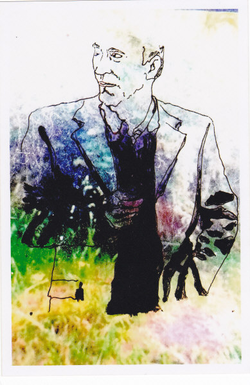 Bio: James Walton has been published in The Age and Sydney Morning Herald newspapers, and many journals and anthologies. He has been short listed twice for the ACU national Literature Prize, is a double prize winner in the MPU International Poetry Prize, and Specially Commended in The Welsh Poetry Competition. Hope, reconciliation, struggle, travel, tireless searching, the music of Mimi Gilbert covers a lot of ground, digging deep where water hides just beneath the surface of things. Songs that act as a catalyst of transformation come into the world rarely enough, when they do emerge, their resonance, a sound so deep, full, and reverberating, can alter us in unmeasurable ways. The rewards of what we do, as artists, as human beings, can all too often be fleeting and ephemeral, like water rushing through our hands. But if you are creating despite all of that, then it is probably something else, something deeper that you're after. Gilbert's album, Strangers Won't Exist, is a testament to that act of laboring over the impossible, voicing the unexpected, and emerging with those diamonds in the rough that are life's greatest, most hard fought for truths. AHC: What has this journey, this life in music been like for you, the highs and the lows, and what life lessons do you feel you've picked up along the way? Mimi: I never quite intended to be a full time musician. I hated (I emphasize that terrible word hated) singing in front of people until I was about 16. It makes me laugh now. I would get so angry at anyone, my family members, if they happened to stumble into my room when I was quietly singing at my desk. I was so emotionally guarded. The journey of music has taught me to be open, to give love and to receive love… as exaggerated as that may sound. I started street performing at 15 because I loved the ambiguity of the street and its people. Street performing is the reason I can play music for a living today. It has taught me to be strong, to choose to be humble or be humiliated, to not care what others think. It taught me how important it is to give love to everyone equally: strangers, rich, poor, homeless. Now that I am street performing a lot less and performing more in venues and on more official small-time tours, I am learning about the business of it all, which if course has its good and bad stabs. At the end of the day, one of the biggest lessons I can take away from the highs and lows of a life in music is this: stay humble, love people and treat everyone the same. Maybe more importantly, for the longevity of staying in music as work, is to do it because you love it, and not because it pays the bills or gives you a name. A lot of days, if wont give you either of this things. Something I love (and often actually despise) about the ‘profession’ of music is that in this job, one doesn’t leave his or her personal life at the door when they come to work. One must invite it all in and be ready to expose the good the bad and the ugly.. at least with the kinds of music I like to write. I am thankful for music, it keeps pulling my arms wide open, when i’m often tempted to put up my guard. AHC: What first drew you to music and what was your early musical environment like growing up? Were there pivotal songs for you then that just floored you the moment you heard them? Mimi: The first time I was absolutely caught by the love of music was at a Les Misérables production at the Pantages Theater in Los Angeles when I was 5 years old. My mom, Heidi, (I am so grateful for my parents) was a dancer in New York before she had us babies. She always invested her love for performing arts into us and spent her cash taking us to occasional musical theater productions. I remember seeing little Cosette (a small orphan girl in the opera) sing on stage. That small and quiet tomboy 5 year old me was so moved. I felt like I was her, like she was me. I remember during intermission, my brother and I snuck down to look into the orchestra pit. The sound of everyone tuning their instruments and fiddling with their cellos and clarinets, ahh it might be one of my earliest memories. Something similar to falling in love. My mom tells a story of me later that night (I have no memory of this). She says that later that night when we were being tucked into bed, I seemed very troubled. My mom asked me what was wrong and apparently I said “Mom… what if God wants me to sing, but I don't want to?” The things kids say. I wonder what was going through my head. I do remember that later that week, I took some of my dads clothes- big sweaters and stuff- and wore things inside out and upside down, trying to make myself look like an orphan. I snuck out of the house and went to our street corner (we lived on an orchard, alright? So maybe I had an audience of 2 or 3 passing cars), and I sang songs pretending that I was that little french orphan Cosette. Eventually, a lady driving past, parked her car, got out, and upon asking me a bunch of questions, she walked me to my front door step- totally shattering my little orphan facade. AHC: Do you remember the first song that you ever wrote? Mimi: Yes. Haha. I have no idea the contents, lyrics, or melody of this song. I was so terrified someone in my family would find the lyrics, so I went out into our orange orchard with my pencil, paper, and miniature Ovasion guitar and found a hidden place under my favorite trees and wrote this little song. It was probably about being jealous of my litter sister or something dumb. The best part is, after I wrote everything down with pencil, I hid the paper under a piece of wood. When I came back a little while later to play it again, the damp soil had entirely erased the penciled lyrics leaving me with a crinkly blank blue-line-smeared piece of school paper. I was devastated. I was probably 12 then. AHC: Who are some of your musical inspirations? Are there certain albums or songs you couldn't live without? Mimi: I grew up on Led Zeppelin, The Eagles, the Lés Miserables soundtrack, and I think that was pretty much it until I discovered indie rock and folk music in my teens. The first musical obsession or crush I had was admittedly Avril Lavigne when I was a teeny-bopper, and then Sum-41 and Blink 182. My brother, who was a drummer by this point, and I started a little bedroom band where we played a few of the easy Led Zep, Credence Clearwater Revival songs. It wasn’t until I stumbled into listening to artists and bands like Ray Lamontagne, Cat Power, Fiest, Missy Higgins, Conor Oberst and Bright Eyes that I was really left feeling heart sick and absolutely zealous for a life playing and absorbing music. My first concert (besides the county fair ones) was a Missy Higgins show in Los Angeles. I fell in love with that Australian accent in her songs, and the upright bass. The first time I heard Ray Lamontagne perform his song “Burn” live, I was so overwhelmed and paralyzed with raw emotion, I knew music would inspire me forever. I knew I would be lucky if one day, music that came out of my expression could make people feel something so real like that. A few albums I would not want to live with out are most definitely Joni Mitchel’s Blue, Ray Lamontagne’s Trouble and Gossip in the Grain, and Cat Power’s The Greatest. AHC: What do you think makes for a good song, as you're writing and composing, is there a sudden moment when you know you've found the right mix, that perfect angle of light, so to speak? Mimi: I have been writing songs for 9 years, maybe more seriously 7, but I still feel entirely novice in a lot of ways. Two things I can say I have learned, however, are this: Firstly, the moment I try too hard to write something good, or clever, or challenging, is the very moment I can no longer seem to write a song that is actually moving in any way. It starts to sound plastic. It’s a humbling cycle. Once I think I’m good enough, the knack is lost, reminding me that the best art comes from a place just outside of ourselves. Secondly, the best songs, or most compelling truths in life for that matter, are simple. The things we all relate to on the deepest levels as humans, are, I believe very universal. This goes for lyrics and melody. So, I try not to get too melodically complicated or wordy. As you can probably tell in this interview, being wordy can be a thing I do if you get me writing, so I have to keep that in check and painfully prune back words a lot. AHC: Do you consider music to be a type of healing art, the perfect vehicle through which to translate a feeling, a state of rupture, hope lost and regained? As a listener of music I have this impression, I wonder, as the artist, the creator, do you have this feeling about the transformative power of song? Does the writing and creating of the song save you in the kinds of ways that it saves us, the listener? Mimi: Oh absolutely. Music heals me. Not just as a listener, but as a songwriter and performer. It may sound egotistical, but as much as I can have perspective on my own self, I really do not think it is. There are so many times I have been playing music on the street, when no one is around, where the only answers to the deepest sorrow or troubles or joys I am encountering, are found floating in an ambiguous and moving melody that comes out of my mouth. No one chooses to have a gift, whatever gift that may be. Sure, we can be responsible to develop our craft, but it is just as much a gift to a singer to be able to sing as it is a gift to a listener to be able to listen. I grew up in a very spiritual environment. Have you ever heard of this concept within Christianity called “speaking in tongues?” Sounds weird and gross. But the concept is this: it is a language gifted to the speaker… a language he or she cannot literally understand. One might speak with this in a way that harmonizes with the very existence of Spirit herself, himself, itself and all the grumblings of the earth, the aches and screams and joys of all human beings and living things are communicated through the speaker, allowing one to be spiritually and deeply understood and received. Taking that concept, regardless of whether or not you think it is silliness, well… music has been this for me. It is way that the language-less depth of my soul (and everyone else’s i am connected with) can articulate the mysteries of life, the beauty and the anguish. I am so thankful for music and art in general for this alone. AHC: When you set out to write an album of songs, how much does 'where the world is' in its current moment, culturally, politically, otherwise, influence the kinds of stories you set out to tell? Mimi: This influences me a lot. Sometimes I have thought it plays a part too much, especially when I am just wanting to write a light fluffy happy-go-lucky song, and it ends up turning into a heavy song and cry for the oppressed instead. I am very moved by current events, ugly outbreaks in the world, seeing marginalized people be stepped on, it often finds its way into my music whether I actually try for it or not. To be completely honest, the reason I am so passionate about music and continuing to trudge through those hard penny-pinching times, is because I whole heartedly believe that music breaks down walls between people groups, brings connection, creates a tension-eased place for us to ponder important and real issues in the world. So, I see music as a medium to bring relief, bring a voice and sometimes hard questions to things happening in the world. I am constantly humbled and challenged to keep learning about how I can add a drop in the bucket of change for the better. AHC: What are your favorite on-tour, on-the-road memories? Mimi: I’ll try my best to keep this brief. This is where i could really talk on and on. My brother and I traveled from San Diego to Canada in the winter time playing music in many cities up the coast in 2010 or so. We packed his truck so full of music and camping gear, that we couldn't fit inside the truck-cab to sleep with all our stuff. So every night, unless we met some trusting person with a couch, we found some bushes to sleep behind, or some parking structure to sleep in. We shared a parking lot sleeping space with a few rough looking homeless people at fisherman's wharf in San Francisco. One night, my brother forgot his sleeping bag at a campsite (it was winter) and so he had to sleep in his surfboard softcase- it was not insulated. I have never been so amused at someones discomfort. We slept crammed up under the truck in Santa Monica (trust me, it’s hard to find an open bush or bench in santa monica- there are a lot of non-house-dwelling troubadours taking all the spots). I remember waking up under the truck and crawling out from underneath it with my dirty head of dread locks and sleepy eyes to a completely shocked fluro-nike-shoes-and-pants-to-match-hollywood jogger passing by. This last year, I went on an across the USA tour with a friends’ band The Brave Kind in the summer. We were in Kansas, or Tennessee or some hot state travelling in a big old beautiful but unreliable van with no air conditioning and sleeping in Wal-Mart parking lots. There was a reported heat wave that week. It was so hot and humid that night in the van that I had to go into wal-mart at 1am to buy a bunch of 1$ frozen pea bags to cover my body with. We couldn't sleep in the end, so we left at 2 or 3am. That night was the first time seeing Mississippi River in her beautiful dirty glory. We blasted Lissie’s “Oh Mississippi” while crossing the river on the big bridge. Then upon trying to find a small neighborhood to park and sleep in peacefully, we were followed by a suspension-lowered, spinning-rimmed white Chevy (i’m not trying to stereotype anything here, that is just what it was). We drove around trying to escape it for a long time, probably 20 minutes, but that car kept popping back up on different streets to tail gate us. We were ready to fight for our lives. Three little white girls, 3 am, middle of nowhere… guitar capo’s and mic stands as our only defenses. That car followed us for a long time before the driver pulled up next to us and taking photos of us and the van with a big iPad, then they pulled off into the night. It ended up being funny…. still don’t know what that was about. Being on the road is where I feel most myself. I have been moving a lot; from Ojai, CA where I grew up, to Australia for a few years, to New Zealand for 2 years, around the States for a while, to now being in Portland for a handful of months before moving somewhere else. So in some ways, I feel like my life is constantly on the road. I am forever changed by the many encounters with strangers who open their homes to me, letting me sleep on their couch, convincing me to take their beds while they take the couch. It’s unbelievable, the goodness in people. I think most of us are too afraid of strangers. Touring has taught me that there is a whole lot more goodness out their in peoples’ hearts than bad. AHC: Do you have any words of advice or encouragement for other musicians and singer-songwriters out there who are trying to find their voice and their way in this world? Mimi: My main advice is: there is no education to prepare you, there is no handbook. Therefor, the best place to start, is just to get out there and grab life by the cojones. A favorite quote of mine from Christopher Mccandless Alexander Supertramp is “if you want something in this life, reach out and grab it.” Practically, I would advise that when you are starting out with your music, try to say yes to most opportunities that come your way (except the obvious terrible ones). Eventually, when you get your bearings a bit more, it will be time to be more selective about where you decide to play. You deserve a place where people want to listen, not just rowdy bars. But the rowdy bars are important to build your chops. You also deserve to be paid well, but need to be ripped off a few times to learn that it cannot be about the money, and to get tough skin to not let it happen. Lastly, I would say, try to get away from this mindset so ingrained in american culture of “Making it” or “being discovered.” If you are going to your local cafe or bar to set up a small music show, you are making it, you are making music, you are experiencing art with people. If you are singing a song for one person, or even to yourself, you are being discovered right then and there. This is foundational. Music is not a ladder to climb, or a mountain top to reach and then be finished. It is a ridge-line of continuous ups and downs. Enjoy the journey. Success is found in the everyday. Remind yourself constantly to do it for the enjoyment and love of it, with a thankful heart for it even being a career possibility. I am trying to do the same. AHC: Do you have any new projects in motion you'd like to tell people about? Mimi: Yes! I released my first studio album in February of 2016. I would like to release another by around the same time (give or take a few months) of 2017. This collection of songs will be a lot different perhaps. I plan to produce and record a lot of it myself. So you can expect a lot of harmonies, triplet guitar picking. We will see. The album itself will be largely full of songs that come from a pretty personal and trying time for me. I am nervous, and I do not like to disclose too much about my personal insides, but sometimes being an honest voice is just more important than staying quiet. For more information and to purchase Strangers Won't Exist visit mimigilbert.bandcamp.com/ 11/20/2016 All the goodbyes By Christopher HopkinsAll the goodbyes The snows came, when the winds changed to the east. River veins in the white by dawn. Rise, the tracing paper sun, above Chelsea bridge, that altar to the lost. The bloodless grace, bound on the black bed muds, untroubled. 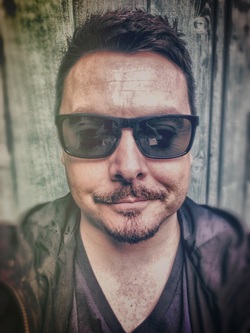 Bio: Christopher Hopkins, was born and raised in Neath South Wales, surrounded by machines and mountains, until he moved to Oxford in his early twenties. He currently resides in Canterbury and works for the NHS. Chris has had poems published in Rust & Moth Magazine, Anti-Heroin Chic Magazine, Tuck Magazine, Dissident Voice magazine, the online literary journal 1947, Transcendent Zero Press and Duane's PoeTree. Two of his early e-book pamphlets "Imagination is my Gun" and "Exit From a Moving Car" are available on Amazon. 11/19/2016 Ugly By Shawn McClureUgly It turned bad so slowly that it was hard to pinpoint when it was too late, but the night Marc was so drunk and furious that he choked Sophie, not letting go until he was a second short of breaking her esophagus, was a landmark moment. The next morning she stared at her puffy eyes and felt the bruises on her neck. Swallowing was more painful than ever before. Even Strep Throat never hurt as bad as this. Sophie took photos of herself, but deleted them. Instead, she made a self portrait with smeared charcoal under the eyes and fat lips. She made hair of scribbles and rough fingerprints. In bold letters beneath, she wrote two words: Ugly, and Ugly. * Somewhere in the middle of a life, a woman walks into a cathedral of green and disconnects. She hears a bird singing out questions, and she searches her mind for the answer. She cannot find it, but there, pushing up through the pine needles, is a pure white mushroom. She remembers reading about this mushroom and its liver destroying toxins. She reaches out and touches the cap softly and sees a tiny plume of spores swirl into the long sun. It is otherworldly, and so beautiful. * Sophie was in the kitchen cutting fruit for her girls when the knock came. Her heart and stomach leapt. The ache from an old fracture in her hip sprang to throbbing life. In slow motion, she dried the juice from her hands, kneeled down eye level to her daughters, age six and three. She made them look at her, and gave them each a firm message. "I love you," She says to one daughter. "I love you," she says to the next, who kisses her hand and goes back to her fruit. Sophie opens the door a crack. It is a man. He does not look terribly unkind. She relaxes only a little. "Sophie Russomano" he says softly. "We would like to talk to you about your late husband's toxicology report." Bio: Shawn McClure is a visual artist and writer who resides in central New Jersey with her family and some cats. She has a passion for nature, science, and beauty found in unexpected places. Her work has appeared in Unbroken Journal, Kindred and Red Flag Poetry, among others. 11/18/2016 Three Poems by Mark J. MitchellLittle Girl Lost Given to ghosts like a hostage, she stalks cool halls—long—quiet as a played out mine. But they lead nowhere slowly. Doors stay locked. So she sits counting beads, missing the time she’s given to ghostly hostages. She’s talked about this mystery with a shrinking god. His silence—the outward sign of his depth-- rings soft as music conducted with nods and winks. She wants to play jacks with death, forget the mystery and sink into God. Dreaming In Color For Neil In this green dream she and I bussed well past our stop. Blank blue houses passed like markers off a lost board game. Then you and I were shooting hoops on brown-packed dirt. There was no pole, no white net or basket and no reason to shoot. You asked—where’s the whadda ya got then I snatched the orange ball. Traveler Her baby cried like an opera star so the bus stayed half-empty. Cars slid past. She didn’t see them. Adjusting the starred straps on a thrift-shop backpack as they passed construction sites, she shifted her wild child along plastic seats then unpacked loose piles of books and cigarettes balanced on top of a flat sandwich. She stretched. Pulled the cord. Threw things back as the bell rang, looking bored. Hopped off. No one noticed the crying stopped. Bio: Mark J. Mitchell studied writing at UC Santa Cruz under Raymond Carver, George Hitchcock and Barbara Hull. His work has appeared in various periodicals over the last thirty five years, as well as the anthologies Good Poems, American Places, Hunger Enough, Retail Woes and Line Drives. It has also been nominated for both Pushcart Prizes and The Best of the Net. He is the author of two full-length collections, Lent 1999 (Leaf Garden Press) and Soren Kierkegaard Witnesses an Execution (Local Gems) as well as two chapbooks, Three Visitors (Negative Capability Press) and Artifacts and Relics, (Folded Word). His novel, Knight Prisoner, is available from Vagabondage Press and two more novels are forthcoming: A Book of Lost Songs (Wild Child Publishing) and The Magic War (Loose Leaves). He lives in San Francisco with his wife, the documentarian and filmmaker Joan Juster where he makes a living showing people pretty things in his city. 11/17/2016 Interview with Artist Gabriela HandalGabriela Handal is a Panamanian artist that moved to New York City in late 2013 to study at the New York Academy of Art, and graduated in 2015 as a draughtsman with a concentration in anatomy. During her two years at the Academy she was able to come to the conclusion that her work was about the human body and what it feels like to be an adult human female. It was a depressive maze of femme fatales, strong but not threateningly strong women, super hyper sexy, “feminine” and “girlish”, always feeding from the dynamic so common between men and women, where the man is always the protective authority figure and the woman is the spunky, perky, cute, adorable, clumsy and helpless little pet with a high pitched voice. Cementing the love for the human figure through anatomical study has not stopped, and she continues to explore and come to terms with being an adult bipedal female. She produced the most recent body of work since graduating, a series of selfportraits as a victim of abuse, in which an external force in the form of a rope or a huge man hand enter the picture plane and harm her in some way. The work started as a way of dealing with unsavory experiences in previous relationships and has become a reminder of her submissive woman behavior throughout her life, in previous relationships and in society. The body of work that has recently started, maybe in opposition to the victim, or in conjunction, because they are interchangeable a lot of times, is a series of selfportraits as a whore. And “whore” only because that is what she is perceived as. “Slut”, “asking for it”, “cunt”, “bitch” or any name applied to a woman that wants to own or explore her sexuality, be assertive or confident or even just like herself a little bit. This series of selfportraits explores this ground of the not submissive woman, not embarrassed to be naked, not hiding, not trying to be skinny or “tight”, but whatever feels good for herself. Her medium of choice is graphite or charcoal over paper, because it is such versatile medium. She has the capability of being extremely precious with a drawing and develop it as much as she wants or make drawing over drawing, erase and draw, use sanding paper, brushes and charcoal powder. She has her choice in this very dense spectrum, where she can pick and choose with the precision of a pencil sharpened to a point like a scalpel. AHC: Can you talk a bit about your process, themes & inspirations? Gabriela: I have a difficult time defining and believing in inspiration to make work. I know that I get an urge sometimes to draw things, I kind of always want to draw, the act of drawing is satisfactory, finishing a drawing makes me feel very accomplished. When I see a pleasing image, I want to draw it to know it better. When there’s no specific reference or point of origin, I want to see something with my own eyes, not just with my mind’s eye, I have an urge to make it a physical thing and not just a thought in my head. I guess for themes and inspiration, the human body is the main thing. For a while now, I have thought of the human body as the first thing that my work is about. I am a fan of the human body in the doctor, sort of sterile and cold sense, but I also think that is impossible, because how can somebody not be fascinated and moved by it? We are raised, or at least I definitely grew up with very conflicting ideas about the human body, what with what I saw in commercials and glamour magazines, and to a lesser degree, at home and with family, who are also victims of the brainwashing that society puts on us, I would get comments about not going to the gym because I would look like a man or about other women dressing like “sluts”. There is this denial and fascination with the human body that I see everywhere, but I have decided to just give in to the fascination. The second thing my work is about and inspires me, is what it feels like to be an adult female human. It used to be that I loved all the strong female characters in fantasy, X-men (my favorite has always been Storm), Killer Instinct (my favorite is Orchid), Batman (my favorite is Catwoman), so the anti-heroine, the temptress, Lilith, and that always went with the idea that women can only be so strong, because then they start intimidating the men, and then who is going to be the “strongest”? So women are “crazy”, “moody”, “strong for a girl”, “sexy”, “feminine”, independent, but always succumb to a strong male protector that “tames” her, so it was this really confusing oxymoron. Then upon starting my study at the New York Academy of Art, I started doing almost exclusively self-portraits, my conclusion was that I couldn’t believe I was studying art in New York, so I made images of myself to see myself here with my own eyes (back to that seeing something in front of me, looking in the mirror wasn’t enough), and then it became that I was trying to figure out what the woman oxymoron was for me and I started with imagery where I still was trying to appear “pretty”, and then I started to explore and distort my face and body and it sure is liberating. There’s not that much to the process, I beat up my paper, trying to figure out the image while on the paper. I erase and draw again as many times as I need to, and I try my best to not care about getting it right the first time and not be afraid to move things or start over. AHC: What first drew you to art? Was there a specific moment in your life or turning point where it became clear to you that you were being called to create? Gabriela: I’m really not sure because it has always sort of been there. Around my early 20s I think I decided I wanted to study art, some time after I was comfortable referring to myself as an artist, but I think only recently I am really prioritizing it and trying as much as I can to produce work. AHC: Who are some of your artistic influences? Is there anyone outside of the art world who has had a huge impact on your work or who just generally inspires you, writers, filmmakers, musicians etc? Gabriela: Some of my first influences were Boris Vallejo, Luis Royo and Dorian Cleavenger; these dudes work within the spectrum of woman that I was describing in the first question, which is fine, because they are also victims of the same brainwashing, but I wouldn’t have been able to put my finger on that at all when I was fascinated with their work. I wanted to be like these women that were in very uncomfortable situations that somehow managed to remain bombshells and in control, and just seem comfortable regardless of the situation. These days, two artists that I seriously love are Anne Harris and Maya Kulenovic. Anne, because her work is also almost exclusively self-portraits and she is also exploring the woman thing, and Maya because her aesthetic is so satisfying. Outside of the visual arts world, I consider Trent Reznor to influence, inspire and impact my work and I. I find it incredibly inspiring how never stopped making music or wanting to make music or thinking about making music. I also find it incredibly inspiring that he has done many of the things that he set out to do when he was much younger, like scoring films and making music with a woman vocalist. He is my biggest inspiration as an artist and as a person, because he has always stayed faithful to his artistic vision, his overcoming addiction and making music throughout deep struggles, recovery and soberness, landing in a beautiful and healthy relationship that he treasures and appreciates. Dan Carlin is another guy that gives me fuel. I listen to his podcasts when I draw and I really like how he just gets down to it, just talks about the subject, no radio background sound effects (at least not anymore), and tries really hard to give unbiased information. I haven’t listened to all of his podcasts yet, but my two favorites so far are The Wrath of the Khans and Blueprint for Armageddon. So he is inspiring in that he is doing something, podcasts/new media, is good at it, is faithful to his vision of what he wants to deliver with the podcasts and is successful. AHC: How have your views of feminism changed since starting this latest series of drawings? What were your views beforehand and what brought about this reexamination or re-translation for you personally and artistically, and how do you see it playing out in your work and your life now? Gabriela: My understanding of feminism has evolved constantly long before I even considered the self-portraits as a victim. I look back and remember all kinds of horrible things that I thought, said and felt, things that other people around me still say. I went through being embarrassed and hesitant to call myself a feminist, the slut shamming and victim blaming of other people, to wanting to embody the impossible woman I talked about earlier, to now. Now I feel like I’m beginning to get it, or just going with what makes the most sense to me, that feminism is about equality and respecting whomever you come in contact with, regardless of who they are. For me it is extremely important to remember that everyone is a human and a person, before they are anything else, we are not infallible or absolute, and that we are extremely complex and versatile. I don’t know what brought about the evolution in my case, and I get frustrated that other people still judge and hate other people because they don’t fit into the “woman” or “man” mold or whatever they think is “right” for a person to be, when I think we are way beyond that point. Or I just think that if I could move beyond that, so can everyone else. I would say that the work has been influenced by my views in that it feels like it is even more about the human body, curiosity for it, admiration, being humbled by it, and learning more about myself and my own body, exploring things beyond the self-portraits as a victim. AHC: This current work comes from a very painful, scary place, yet in creating these drawings there is a certain reclaiming of an indelibly innate strength, narratively, visually, emotionally, for you, and I would imagine for other women with similar experiences. How have these drawing been received, have others relayed similar stories or a feeling that they got from the work that has resonated with you? Has creating through these difficult experiences, memories, pain and conflict helped you to sort and sit through what happened and to foster a type of resistant, surviving and creative energy which breaks through and does not lower its voice, so to speak, that says what needs to be said and does not shy away from bearing and being the truth of one's experiences, both as a female and as an artist in this world? Gabriela: The reception of the drawings is really interesting. Some people think they’re BDSM, that they look staged, that I should be careful using that visual language, other people think they’re really erotic and sexy, and other people consider them a criticism of violence against women. One or two have mentioned the drawings hitting really close to home. I don’t remember anybody telling me specifically “I went through that, too”. I have no intention of speaking for anybody except myself, which is part of respecting everyone else and being very aware that I have no physical way of feeling what anybody else feels, that’s quite impossible. I welcome every reaction to the drawings, all the thoughts are valid, because everyone’s visual language is different, I don’t get offended if somebody thinks the drawings are hot, because if they’re into that sort of sexual relationship, all the power to them, and I don’t get offended if somebody thinks that the drawings are speaking out against violence against women and that I’m trying to make a political statement. Making the drawings was a process, it took about the amount of time that I was at the New York Academy of Art and I made most of them in the last quarter of my studies there. I was sort of putting it off, skirting around the subject, how uncomfortable I was with the experience that triggered my need to make the drawings. I actually hesitate to use the term “abusive relationship”, I’m really not sure if that is what I experienced, although I’m also aware it is a very ample spectrum and lots of things fall into “abusive relationship". Some time after I was in this relationship and a considerable amount of time being single and having casual relationships, I wanted to have a nice, steady, long term, healthy relationship, but I would look at a guy I found attractive and my first thought would be “he could rape me” or “he could beat me” and that really didn’t seem as healthy to me, before that I found myself just shielding myself from showing my vulnerabilities to people, not wanting to cry in front of people or talking about my feelings. Right before I did the self portraits I made some imagery of vulvas and mouths and titled them “storage space”, because I wanted to see what it was like to actually see the female body as an object and just not see a person, and really that is messed up to know that lots of people see others as an object, the same as a chair or a desk. I’m really not entirely sure how I landed in the self-portraits, I knew that I was developing an unhealthy fear of physical abuse or ending up in a relationship where I would get beaten and not be able to defend myself or remove myself from the situation, so the drawings were a way of facing that fear, by seeing myself in the situation. Back to having to see things with my own eyes. Some of the drawings cite specific things that happened in the relationship I was in, the face grabbing (which was actually slapping, but face grabbing works for me in the drawings), and hair pulling, for example, and the other things were a continuation of the exploration of physical abuse. It’s not to say that I am not at risk of ending up in a violent situation anymore, everyone is always at risk of that, but making the body of work was very cleansing and helped me deal with it so that it’s not a constant worry. AHC: You've written that the work is made in opposition and in conjunction with the role of the victim, something you see as interchangeable, could you talk some about this? And also about this 'not submissive, not embarrassed, not hiding', strong woman that does what feels right and good for herself? What advice would you give to women struggling to embrace and be who they need to be? Gabriela: I’m not sure whether I’m the one that sees the role of “slut” and “victim” as interchangeable, it occurred to me that that’s what I perceive other people see, that’s what I pick up in the news if I see a sort of story where a woman comes out with accusations of sexual assault against a man. I see a victim that is doggedly demanding her issue get resolved and the public reception is that she was somehow asking for it by dressing in a certain way or doing a certain thing, that makes it so that not only does she deserve the sexual assault, but she actually wanted it. And I think maybe that’s why I started thinking of the self-portraits as a whore as a continuation or like the B side of the self-portraits as a victim. At first that was not the case, it was just another thing I wanted to explore: how I might be perceived as a sexually active female. With “not embarrassed, not hiding, not submissive”, I’m thinking of owning myself, sort of. It took me a while to own my body and myself, like for example before, if I was in a relationship I thought I couldn’t go out with friends or put up a nude photograph if I felt like it, or like I had to ask permission to do certain things. It’s the stereotypical male and female dynamic in a relationship, the power struggle and the battle between the sexes, I thought I had to play along with that, and it took me a long time to leave my armpit hair, stop shaving my eyebrows, cut my hair really short, this kind of thing that somehow immediately invalidates the “woman” mold. And not just in the dynamic of the male and female relationship, but how a woman is supposed to wear certain things that are “flattering” to her figure, depending on weight and age? I just don’t understand why do we do this to each other. So it took me a while to remove myself from that and begin to own my body again. I’ll do certain things that make me uncomfortable sometimes, precisely to try to break the womansuit that I’ve been imprisoned in. The latest challenge has been leg hair and I gradually get more comfortable with leaving it there and going out with shorts and flip flops and it amuses me, and I shave whatever body part exclusively if I feel like it and remember to do it, not because I feel obligated to keep up with something. I don’t know what advice to give to anyone. It was a process for me and it continues to be a process that is not simple or easy, I’m going through my own process, we all have our own, it’s organic and very specifically tailored to each person and all their own personal variables. I think everyone should listen to their gut instinct and do what feels right for themselves, regardless of the discomfort or unfamiliar ground it might take them to. Or at least try sometimes. AHC: What is the first work of art you encountered that took your breath away? Gabriela: Strangely, this has been the most difficult question to answer and I left it for last to have lots of time to think about it, but I still sort of can’t think of a specific work that took my breath away. I’m thinking of stuff that I haven’t seen in person, but that I couldn’t look away from and wanted more of, and things that I’ve seen in person that caused me to tear up. Dorian Cleavanger has a painting titled “The Gift”, which was my favorite painting for the longest time. It’s this woman that has the Y incision on her torso, has piercings in all sorts of places, her irises are barely visible. The image comes off to me a very violent, there’s hatred in her eyes, it’s like she’s really angry and insane, she has this snarl on her face. It turns out that the gift which is spoken of in the title is her heart, which is in a gift box that is in front of her. Very beautiful and tragic. These two that I saw in person at the MET’s drawing room, I’m not sure if that’s what that room is called, but you schedule an appointment and look at drawings from the masters, I saw the Libyan Sybil by Michelangelo and a sketch by Leonardo DaVinci. And the Libyan Sybil made me tear up. These were two very very serious guys, and thinking that they breathed on these little drawings, that they touched the paper with the side of their hand while they held their pencil, they had an internal dialogue whilst looking at their drawing, blew me away. The Libyan Sybil is so delicate and precious, I’ve seen the drawing so many times in books, but seeing her in person was very moving. AHC: Do you have any upcoming exhibits or new projects you'd like to tell people about? Gabriela: I’m currently working on this body of work of self-portraits as a whore, and I want to find a space in which to show them alongside the self-portraits as a victim, and show everything together. I also have this fantasy/project (fantasy, because it looks like it might take a while) in which I collaborate with perhaps up to 20 fellow visual artists and then I show the work in a gallery or any space that lends itself to it. I have a completed artwork and a second in progress for this project so far! As we speak, also, I am part of a four woman show in Brooklyn, at Freddy’s Bar and Backroom until December 3rd, where some of my anatomy oriented work can be seen. For more visit gabrielahandal.com/ And Freddy's Bar and Backroom @ freddysbar.com/ 11/17/2016 Two Poems by Sergio OrtizThe Mind is its Own Place We all yearn to go back to the edge of that fire and kick that fucking election, the religion, the race of an entire nation in the balls so everything breathes at the rhythm of our lungs. But none of that worries us now. We worry about the detonator of tomorrows, the almond beyond the shell, the shiny nugget, and the damn heat even when we know it’s November and an eerie cold is fast approaching. We want pleasure to surround our waist. It can be you, or anybody else who embraces my body already lightened by the burden of the world. Yes, you can take me to the sea inside where there is only the sound of blood running like a flowered beast. And so, we go back to our room tell yourselves, fuck it, it’s better this way? The Damage Something we were withholding made us weak Until we found out that it was ourselves The Gift Outright, Robert Frost Maybe life gave us too much at the beginning and we kept looking for a path that maintained enough of a balance so as not to become this pestilent air. Maybe life did not belong to us anymore, maybe the things we believed in were part of the damage, part of the petulant wind knocking down the walls of our nation. And if we had known the outcome would we have put our hands together or looked elsewhere, renounced everything to stay still so as not to cross the days that agonize? This is so immense it doesn't fit into tears. We’ll hear the results, but there’s no greater nostalgia than that of the future. Bio: Sergio A. Ortiz is a gay Puerto Rican poet, and the founding editor of Undertow Tanka Review. He is a two time Pushcart nominee, a four time Best of the Web nominee, and a 2016 Best of the Net nominee. His poems have been published in hundreds Journals and Anthologies. He is currently working on his first full length collection of poems, Elephant Graveyard.
Photography by Kelsey Cherry
Often likened to artists such as Alison Krauss, Joni Mitchell, and Patty Griffin, Lynne writes and sings from a place of sincerity and simplicity. Roots music has always been in Lynne's heart. A northern California native, she grew up singing harmonies in the family western swing band and fell asleep in the Winnebago on summer nights to the sounds of campsite jamming at bluegrass festivals. Lynne went on to pursue a career in musical theater, touring nationally and internationally. Along the way, she found herself in Nashville, where her love for roots music resurfaced and the songs began to write themselves. Since her recent move, Lynne has had the opportunity to perform professionally in both Nashville's songwriter and theater scene. Her musical output has been described as “Original Americana-style songs that come at romantic relationships with honesty, wit and none of the tropes and cliches that lesser songwriters so often fall back on. Lynne brings life experience without sounding world weary, sincerity without self importance.” AHC: What has this journey, this life in music, so far, been like for you, the highs and the lows, and what life lessons do you feel you've picked up along the way? Mia: The highs include growing up in a family and singing with my parents and sister in their band (even though I was embarrassed sometimes) and getting to make a living doing what I love (playing shows, making albums, and doing musical theatre). I still have a lot to learn but one life lesson I keep coming back to is staying true to sharing what’s in my heart and not just trying to emulate anyone else. AHC: What first drew you to music and what was your early musical environment like growing up? Were there pivotal songs for you then that just floored you the moment you heard them? Mia: As I mentioned above, I was born into a musical family and for that I am eternally grateful. I sang harmonies in the family band and spent summers at bluegrass festivals. I was influenced by the folk, bluegrass, and western swing my parents played and listened to as well as musical theatre and Alan Menken’s beautiful Disney songs (90s kid!). AHC: Do you remember the first song that you ever wrote? Mia: Yes, I wrote it my senior year of college and it was really cheesy! It was called “Enigma” and I hope nobody ever hears it. I didn’t continue trying to write until several years later. AHC: Your music has often been compared to Alison Krauss, Joni Mitchell, and Patty Griffin, are those your favorite songwriters overall? Who are some of your other musical inspirations? Which musicians have you learned the most from? Mia: Those are definitely some big inspirations. My background in musical theatre and jazz also really influence my music. Others specific artists that have inspired me include James Taylor, Brandi Carlile, Norah Jones, and recently Sarah Jarosz. AHC: What do you think makes for a good song, as you're writing and composing, is there a sudden moment when you know you've found the right mix, that perfect angle of light, so to speak? Mia: Melody is the most important element to me. If it's beautiful and unique and the words flow with it, that’s what I’m most concerned with. Lyrics are immensely important too, but the melody is what speaks to me most. AHC: How has your music evolved since you first began playing? Mia: In regards to playing the guitar, I found a specific two-finger style of fingerpicking that I really love and I started experimenting in alternate tunings which was a game-changer. I’ve started paying much more attention to specificity in lyrics. AHC: Do you consider music to be a type of healing art, the perfect vehicle through which to translate a feeling, a state of rupture, hope lost and regained? Does the writing and creating of the song save you in the kinds of ways that it saves us, the listener? Mia: Oh, absolutely. I have so many songs that I wrote to help me process emotions and heal. Many of them were written solely for that purpose and may never actually be heard by anyone else. My hope is that the ones heard by others might help them process emotions, too, or at least not feel alone. AHC: What are your fondest musical memories? In your house? In your neighborhood or town? On-tour, on-the-road? Mia: My first CD release party was a couple years ago in my hometown of Novato, California. We did a house concert at a family friend’s home and there was an amazing turnout. Mom played bass and cello, Dad played percussion, and my sister Natalie sang harmonies. It was a very rewarding and loved-filled family affair that I’ll never forget. Playing shows in my hometown is always like going back to the well of love and support. AHC: What would be your dream gig, if you were asked to go on tour and open up for one of your musical heroes or heroines? Mia: Patty Griffin or Brandi Carlile. AHC: You also have a career in musical theater, what has that experience been like? Mia: It’s wonderful! I am currently in a production of “How The Grinch Stole Christmas, the Musical” at the Grand Ole Opry and it’s such a magical experience. I love the community aspect of musical theatre and while singer-songwriter life is wonderful too, it can be a little lonely sometimes. I’m so fortunate to be a part of both worlds! AHC: Do you have any words of advice for other musicians and singer-songwriters out there who are just starting out and trying to find their voice and their way in this world? Mia: Listen to your gut when people offer to help (a lot of people will willingly take your money to “take your career to the next step" — just do your research on them first!) As I mentioned above, I have also learned that my best work comes from the heart rather than from trying to be edgy or trendy. That hasn’t gotten me on the radio but it’s creatively sustainable. I say, “do YOU!” Be inspired by others while not playing the comparison game. Also, be kind to everyone. AHC: Do you have any new projects in the works you'd like to tell people about? Mia: I am constantly writing new songs but no new album in the works... yet! If you’re in Nashville this winter, come see Grinch at the Opry! I’ll be doing another hometown family gig on Dec. 30th in Novato. I’m always updating my Facebook music page and website (www.miaroselynne.com) so follow me there for whatever may be next! Also visit miaroselynne.bandcamp.com/ Photographer Kelsey Cherry www.kelseycherry.com/ |
AuthorWrite something about yourself. No need to be fancy, just an overview. Archives
April 2024
Categories |

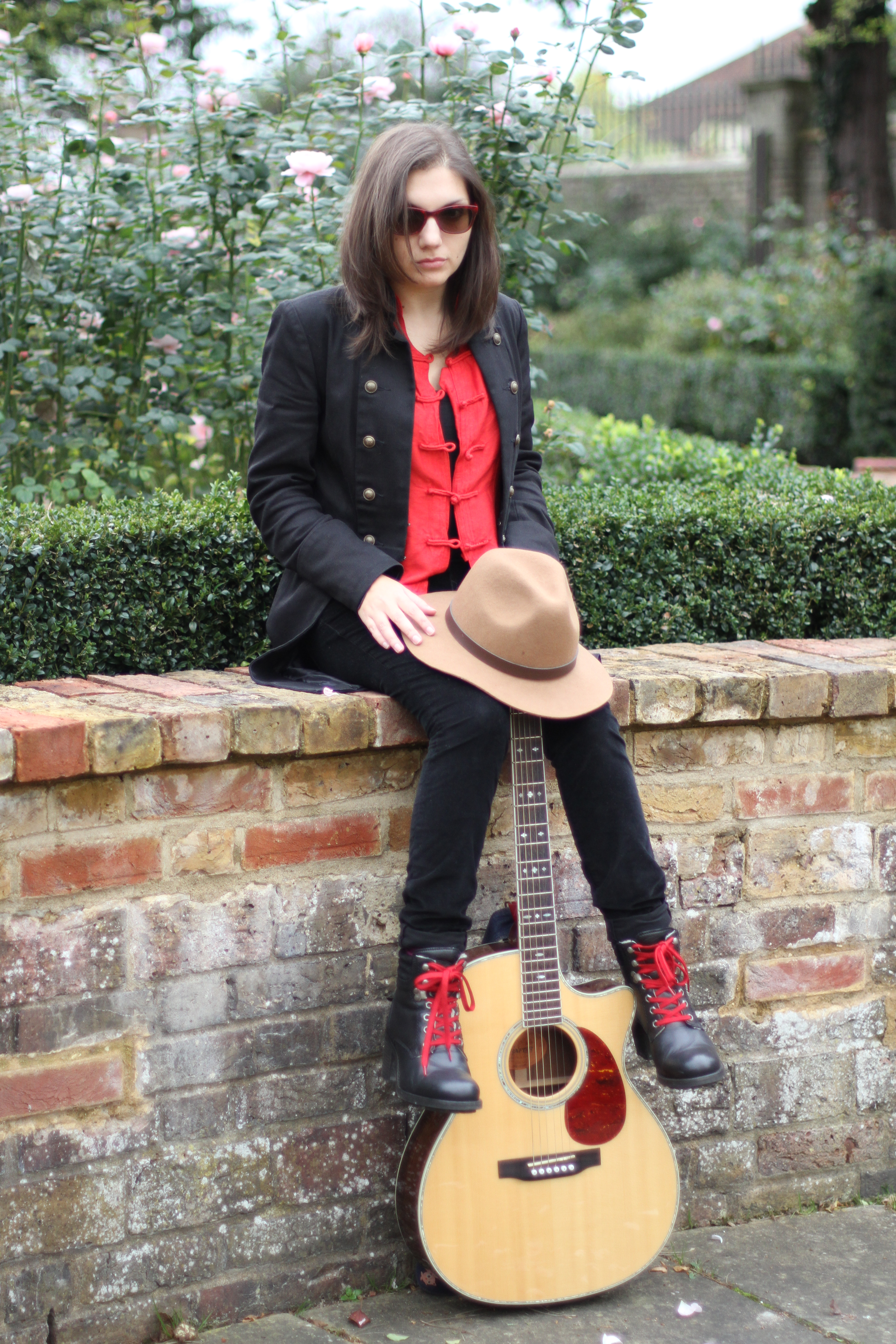
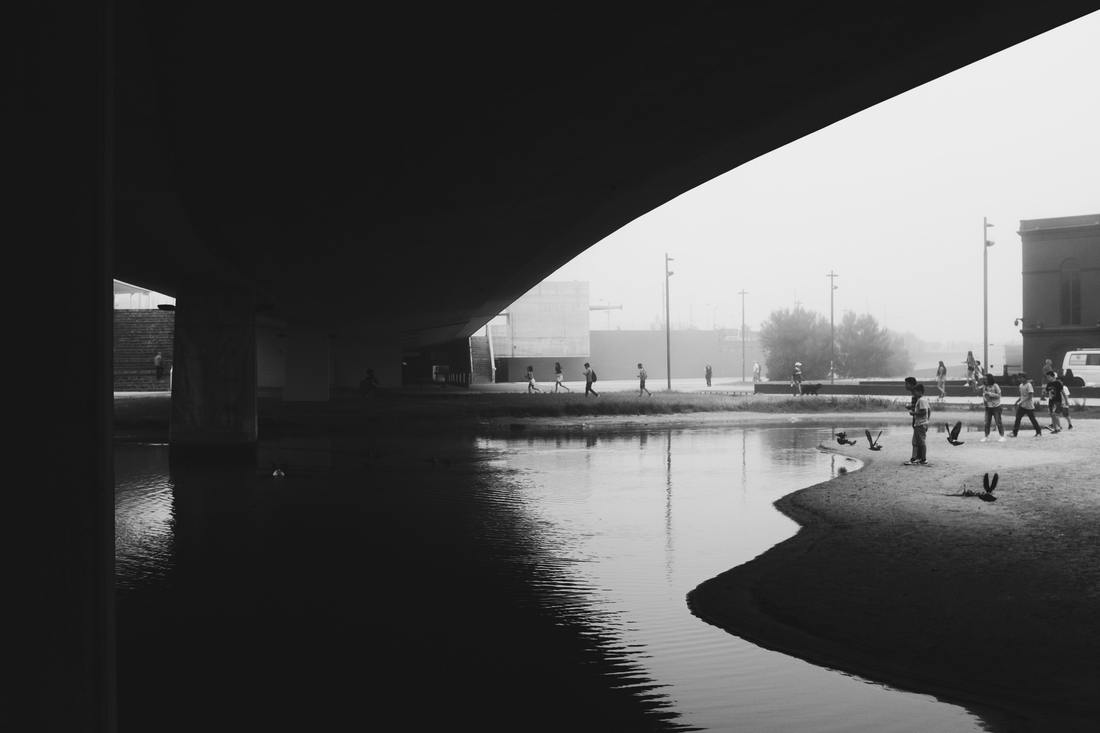
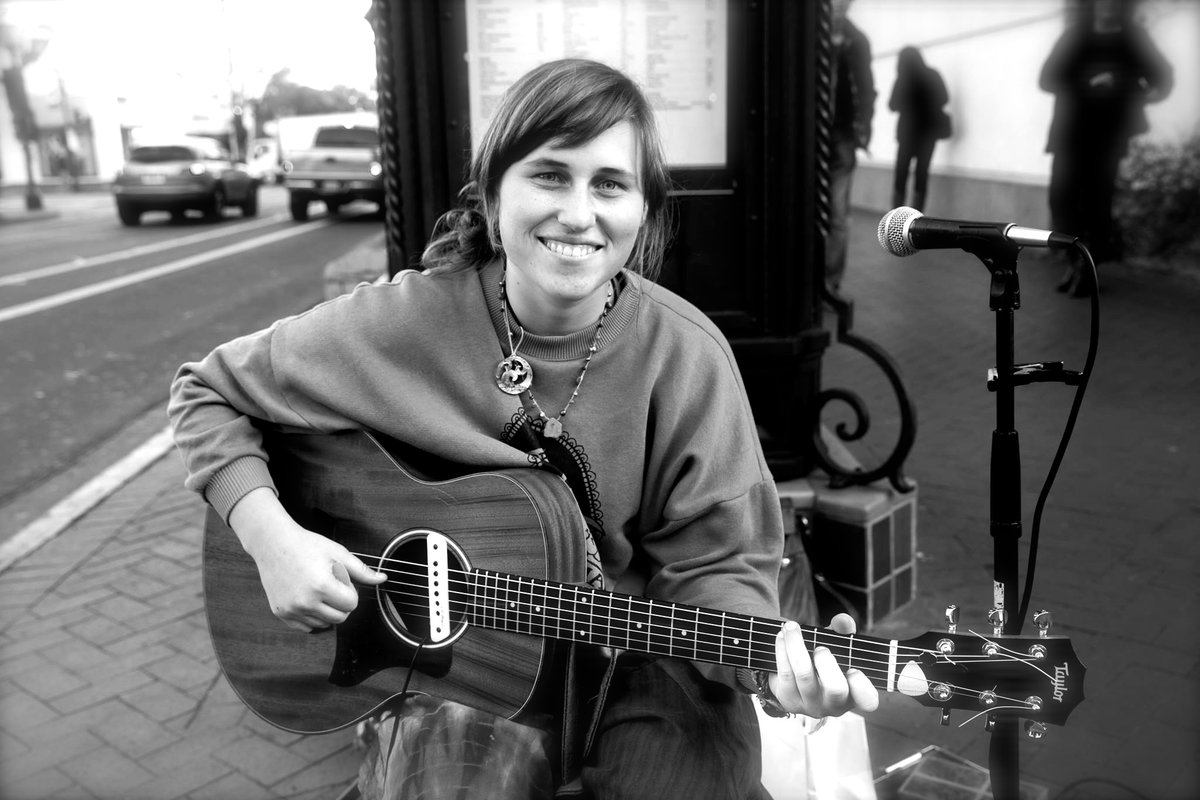
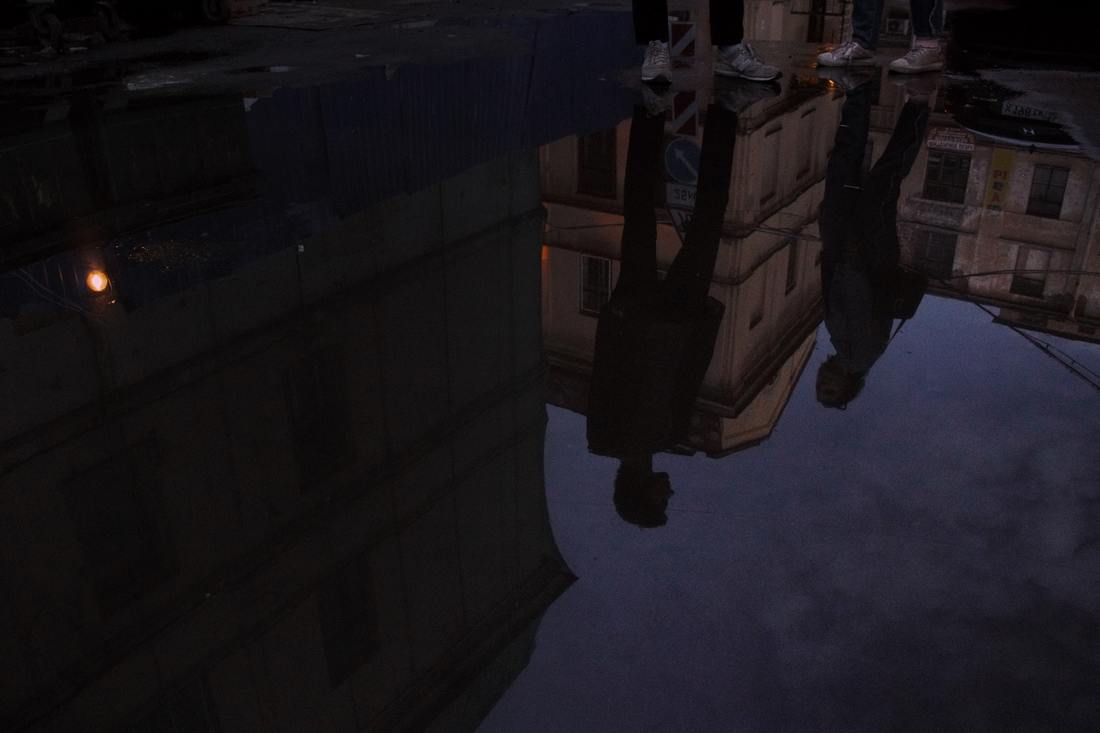
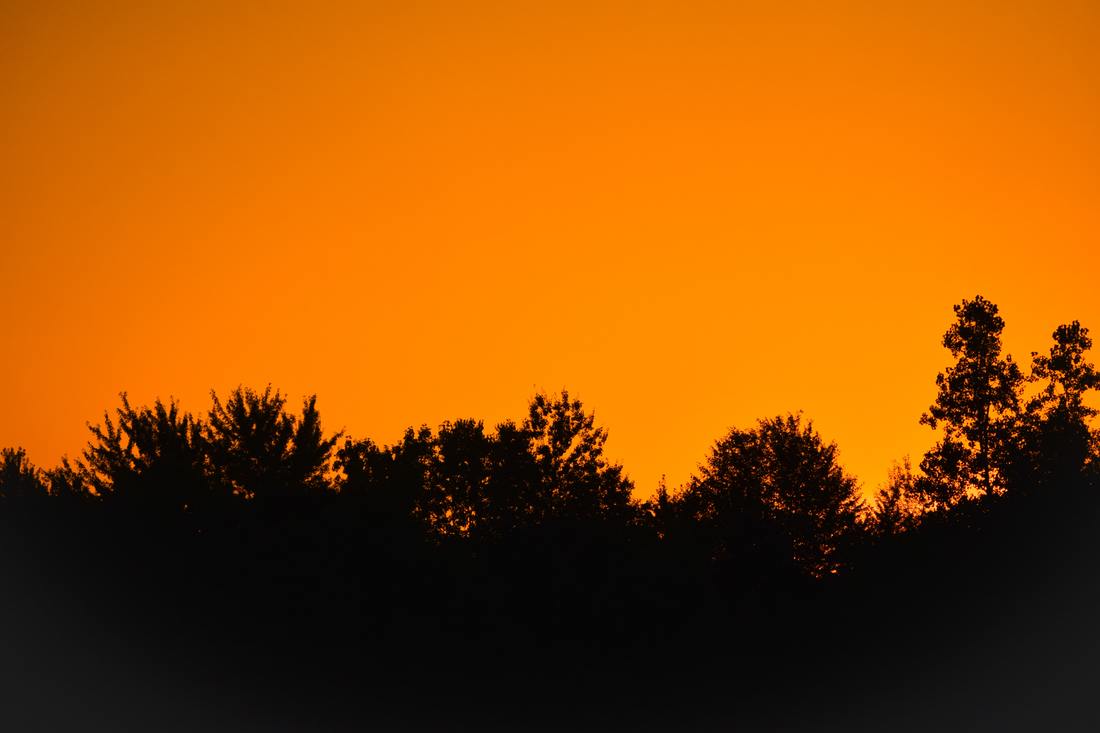
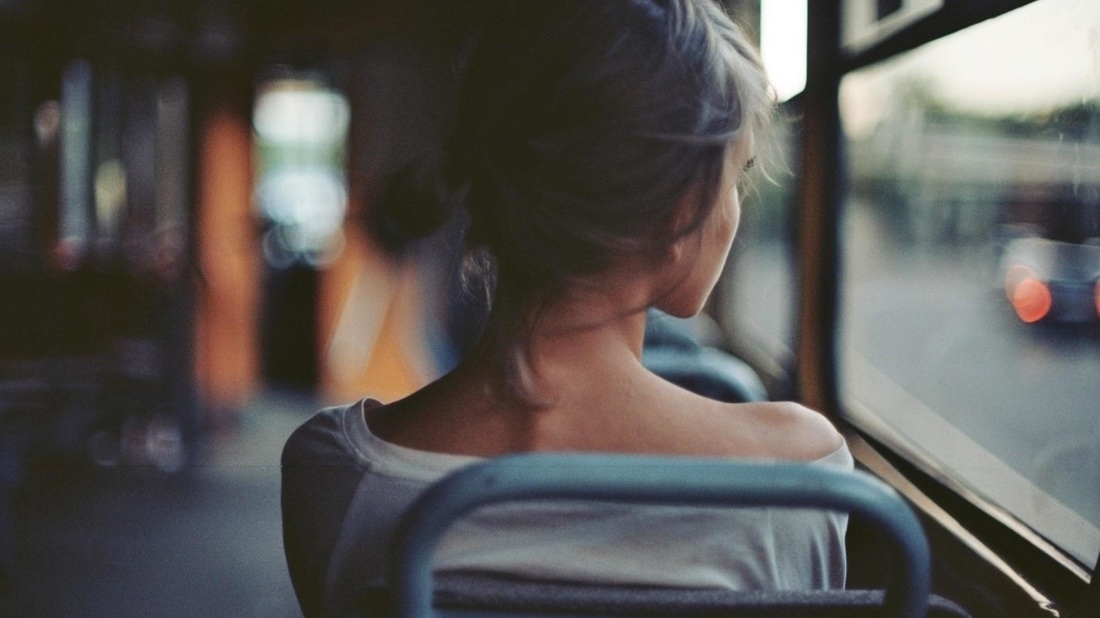
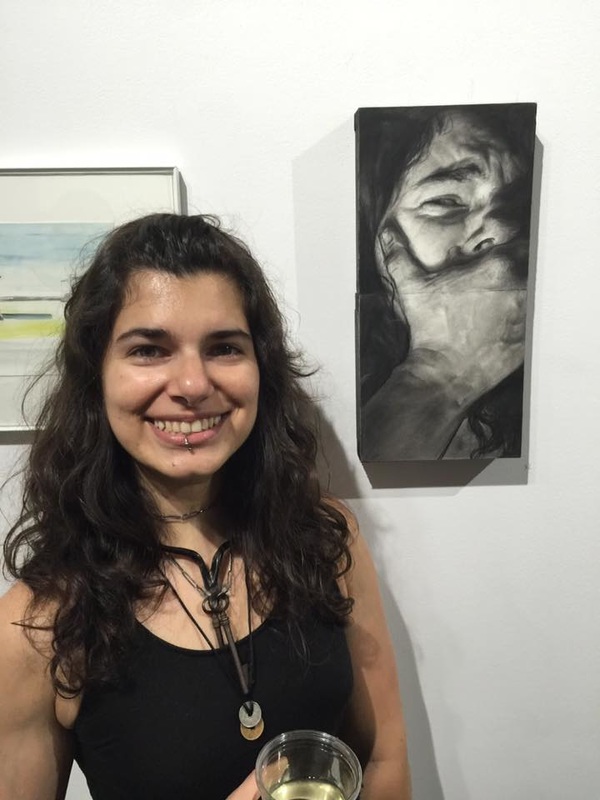
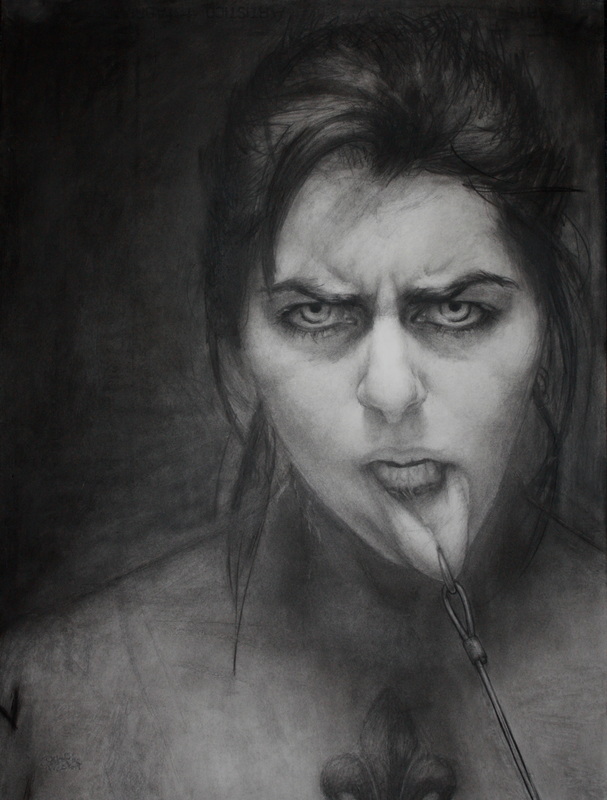
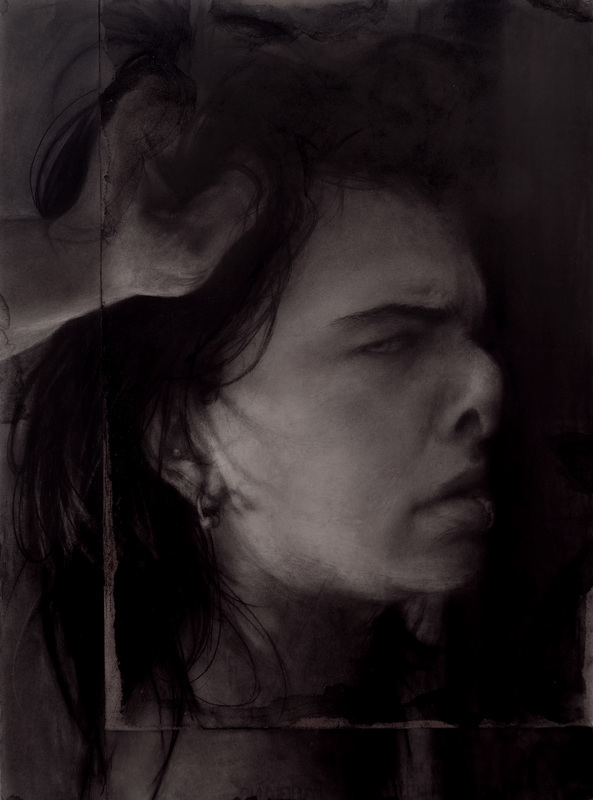
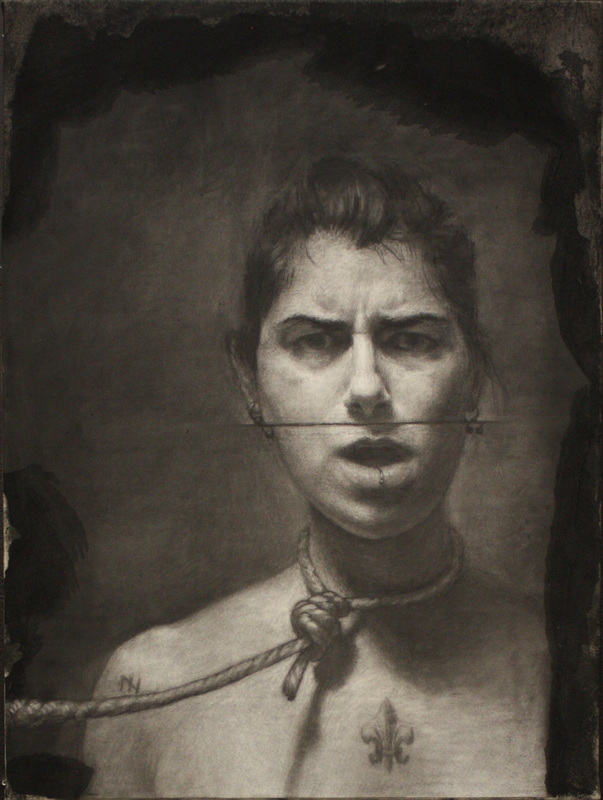
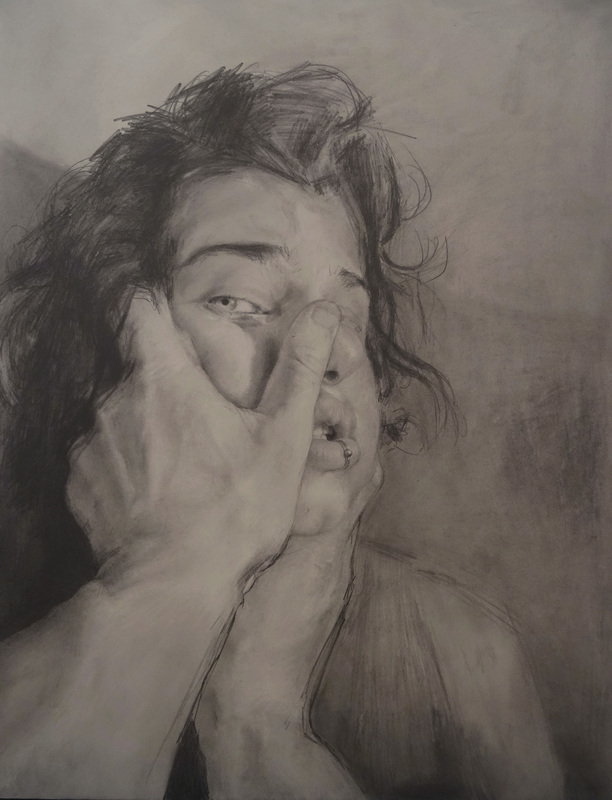
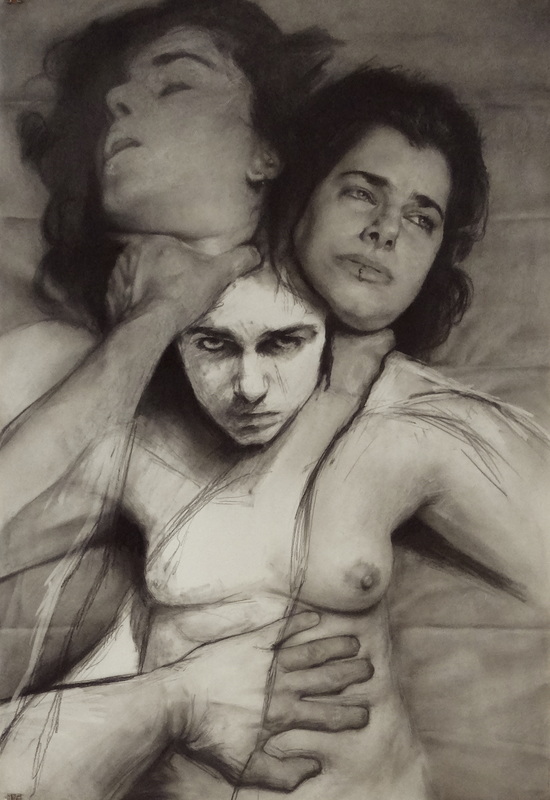
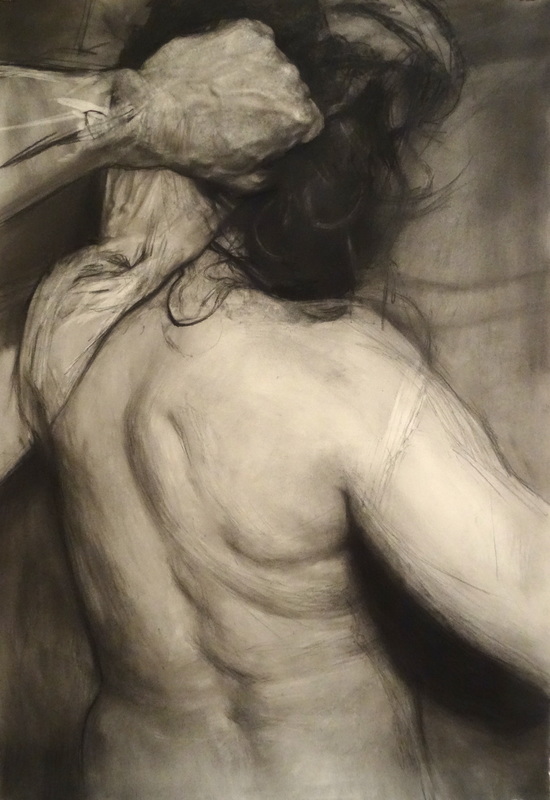
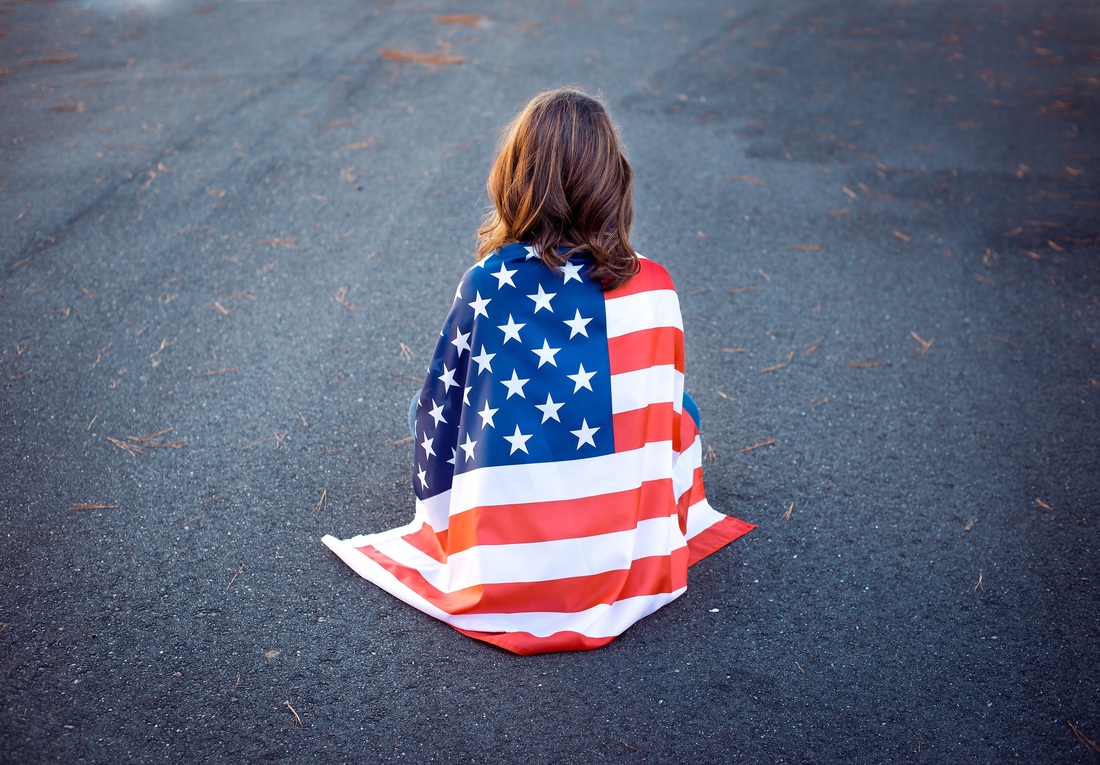
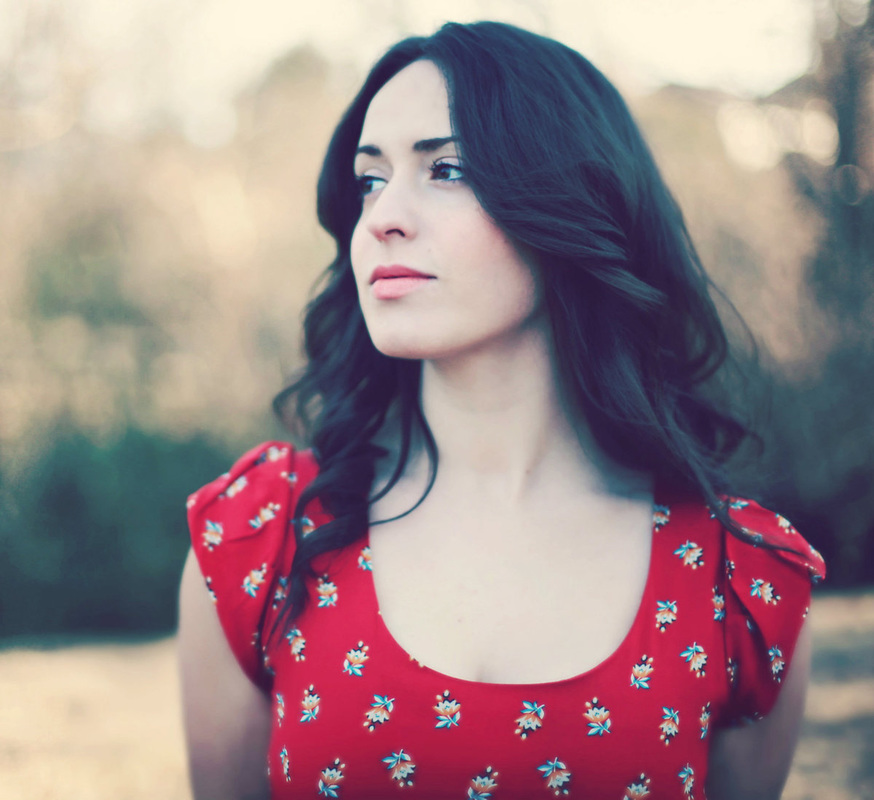
 RSS Feed
RSS Feed
